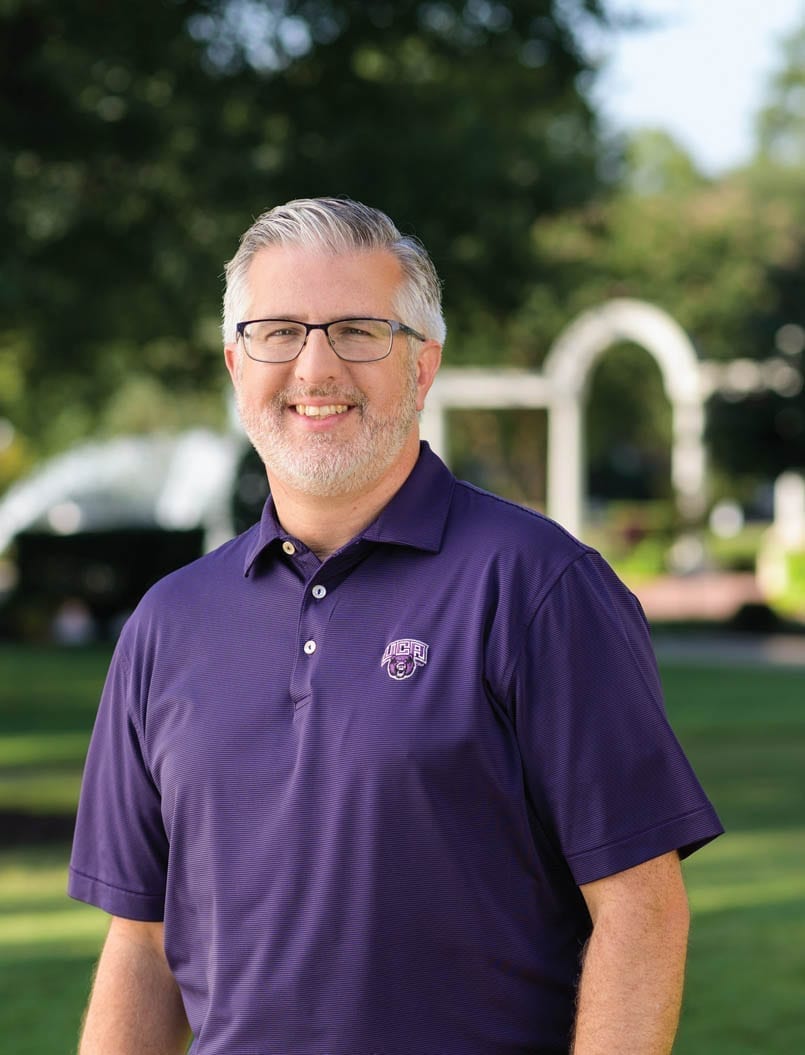20 Jul 2020 Looking ahead: UCA preparing for ‘enrollment cliff’
by Houston Davis, Ph.D.
UCA President
When COVID-19 began to impact the United States, the University of Central Arkansas was already in year three of our Resource Optimization Initiative (ROI), an ongoing, campus-wide effort to maximize the UCA budget in the face of unpredictable enrollment trends and limited state funding. We have been focused on aligning our existing resources to support student success, investing in strategic initiatives, building financial reserves and retaining employees at a competitive market salary.
As an institution of higher education, we were already preparing for the impending “enrollment cliff.” This refers to a time around 2026, when colleges and universities across the nation will see a rapid drop in first-time freshmen. Individuals reaching college age in 2026 were born just after the Great Recession in 2008. The birth rate declined for several years, as Americans delayed starting or expanding their families. This knowledge gave us the opportunity to start preparing and to get ahead of the challenge. With our ROI initiative, we were well on our way.
Then along came COVID-19. While we were preparing for the future enrollment declines, none of us could have ever guessed that a pandemic would precede the “enrollment cliff.” Normal operations have been challenged, and state support for public universities and colleges is facing restrictions from the economic downturn. In March, state appropriations to higher education were cut by 4.4 percent, with UCA’s portion of the cut equaling $2.9 million with three months to go in the fiscal year. In April, that cut became permanent and larger for the upcoming fiscal year, with UCA receiving $7.3 million less (-13.5 percent) from the state as we begin FY21 compared to when we started FY20.

So, what does that mean for us? Because of our efforts related to ROI, we were perhaps better positioned than some other institutions in the state and around the country. In FY20, through measures like a voluntary early retirement initiative, operational savings and reconsidering positions open due to attrition, we had saved roughly the amount we needed to offset the cut in state appropriations. We were able to handle the cut and still end the year with a balanced budget. We will also have a balanced budget in FY21.
However, let me be clear: The impact of COVID-19 will still be incredibly painful for us and many other colleges and universities around the state and nation. While we are thankful to be ahead of the curve, there are still many challenges ahead.
To prepare for what is to come, we are taking additional measures through FY21. We have instituted a formal hiring freeze and a reduction in temporary and part-time positions. We have also centralized our purchasing controls, reduced the number of external contracts and consolidated budget reserves.
Here is what we are not doing: panicking and losing sight of our core mission. In a time when many other colleges and universities are compelled to rush into tough choices related to personnel and academic programs, we have not been forced into rash layoffs or furloughs, cutting benefits, deleting programs, deferring maintenance, depleting our reserves or drawing from the corpus of endowments. As news comes out weekly about institutions all around the U.S. being faced with all of those decisions and others, we have so far been able to avoid making drastic cuts and changes and certainly are glad that ROI provides us a well-reasoned path forward.
As we look to the fall semester, we see encouraging signs at every turn. Our summer enrollments are up from summer 2019, and registrations for the fall semester (as of this writing) are running slightly ahead of last fall’s registrations at this point. Reservations for campus housing are at 98.2 percent of capacity, and students and their families seem very eager to come back to campus and to learn more about the adjustments we will make for the fall semester to living and learning environments in the COVID-19 era. We are equally excited to get them back as a part of our community and family at UCA.
While COVID-19 has certainly impacted our day-to-day operations in many challenging ways, it has also pushed us to work harder and smarter and find ways to adapt and ensure that every action we take is done with student success as our guiding principle. Has it been a challenge? Yes. But are we stronger for it? Absolutely.
Our campus community is fortunate to have excellent faculty and staff working to help guide and support students, as well as dedicated students who are committed to their own success and supporting and uplifting their peers. Each and every day, they make me proud to serve as president.
Go Bears!











